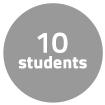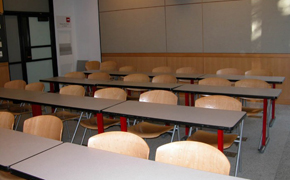Instructor Insights pages are part of the OCW Educator initiative, which seeks to enhance the value of OCW for educators.
Course Overview
This page focuses on the course STS.004 Science, Technology, & World as it was taught by Rosalind Williams in Fall 2013.
This course is a very pragmatic kind of introduction to Science, Technology, and Society (STS). It covers the types of issues and methodologies for studying them that exist wherever science, technology, and society intersect. Depending on a given topic and desired goals, approaches used in STS may include: economic, historical, literary, ethnographic, anthropological, or sociological methods.
Course Outcomes
Course Goals for Students
Students should leave the class with an “elevator talk,” or brief explanation, about what STS is. They should also leave with a tool kit that contains various techniques used across the humanities and social sciences that can be applied to solving problems and looking at STS issues. They do not have to be a master of this tool kit, but they do need to be familiar with what is in it, so they can define a problem that is out there in the world and figure out which tools are the best to address it.
Citizenship education is as important as professional education.
—Rosalind Williams
Below, Rosalind Williams describes various aspects of how she taught STS.004 Science, Technology, & World.
Questions in STS come up all the time and to have some idea of how to approach them is important (for an MIT graduate). Citizenship education is as important as professional education.
Course Development
The STS Department at MIT did not have an introductory course. Instead, there were courses on specific topics that, combined, gave students the skills they needed to tackle issues in STS.
Students in STS.091 Critical Issues in Science, Technology, and Society developed the curriculum and syllabus for STS.004. They decided that the course needed to be based around case studies/units that fulfilled the following requirements:
- One needed to be MIT related
- One needed to be something artistic and/or aesthetic
- There had to be an idea of imagination—opening up what is and what could be
- There needed to be coverage of social issues
Additionally, they determined that key concepts and terms needed to be covered—the explicit introduction to the tool kit.
Speakers and Field Trips
During each unit, an invited speaker gave a presentation, which was followed by a discussion. People are the best source of knowledge, not a Wikipedia page. Telephoning, skyping, and (sometimes) e-mailing the right person can be very useful. Students took field trips to locations for primary research—some of which was based on discussion with experts.
Curriculum Information
Prerequisites
None
Requirements Satisfied
HASS-H ![]()
Offered
STS.004 Science, Technology, & World was offered for the first time in Fall 2013.
Assessment
The students' grades were based on the following activities:
 15% Class participation
15% Class participation 13% Quiz
13% Quiz 13% Final report
13% Final report 13% Photography project
13% Photography project 46% Writing assignments
46% Writing assignmentsInstructor Insights on Assessment
Students had the opportunity to rewrite papers even when it was not required. Some students did two revisions of a single paper.
Student Information

Breakdown by Year
- 10% Freshmen
- 10% Sophomore
- 40% Juniors
- 30% Seniors
- 10% Graduate students
Breakdown by Major
- 10% undeclared
- 10% Materials Science & Engineering
- 10% Architecture
- 40% Electrical Engineering and Computer Science
- 30% Biological Engineering
Typical Student Background
- Upperclassmen
- Not majoring/concentrating in STS
During an average week, students were expected to spend 12 hours on the course, roughly divided as follows:
Seminar
- Met 2 times per week for 1.5 hours per session; 26 sessions total; mandatory attendance.
- Several seminars featured guest speakers.
- Students often engaged in discussions and gave oral presentations.
- Students visited the Institute Archives & Special Collections and the Kurtz Gallery for Photography at the MIT Museum.
Out of Class
Students completed readings, wrote papers, prepared for oral presentations, and studied for the quiz.
Semester Breakdown
| WEEK | M | T | W | Th | F |
|---|---|---|---|---|---|
| 1 |  |  |  |  |  |
| 2 |  |  |  |  |  |
| 3 |  |  |  |  |  |
| 4 |  |  |  |  |  |
| 5 |  |  |  |  |  |
| 6 |  |  |  |  |  |
| 7 |  |  |  |  |  |
| 8 |  |  |  |  |  |
| 9 |  |  |  |  |  |
| 10 |  |  |  |  |  |
| 11 |  |  |  |  |  |
| 12 |  |  |  |  |  |
| 13 |  |  |  |  |  |
| 14 |  |  |  |  |  |
| 15 |  |  |  |  |  |
| 16 |  |  |  |  |  |
 No classes throughout MIT
No classes throughout MIT Seminar
Seminar Oral Presentation
Oral Presentation Assignment due date
Assignment due date No class session scheduled
No class session scheduled Guest speaker
Guest speaker Field trip
Field trip Quiz
Quiz

 Room 1 of 1
Room 1 of 1 